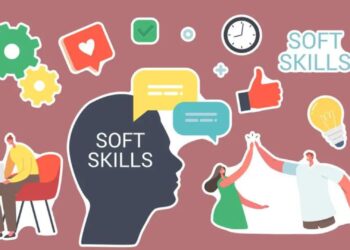In the ever-evolving landscape of hospitality, where guest expectations and industry trends are constantly shifting, continuous learning in hospitality stands as a beacon of innovation and growth. Embracing a culture of continuous learning empowers hospitality organizations to stay ahead of the curve, adapt to emerging challenges, and deliver exceptional guest experiences that consistently exceed expectations.
The Dynamic Hospitality Landscape
The hospitality industry is characterized by its dynamic nature, constantly adapting to the changing demands of a diverse clientele. Technological advancements, evolving consumer preferences, and shifting market dynamics have transformed the way hospitality organizations operate and interact with their guests.
The rise of digital technologies, such as online booking platforms, mobile applications, and social media, has revolutionized the guest journey, placing greater emphasis on personalized experiences and seamless interactions. Consumers are increasingly seeking out unique and memorable experiences, driving hospitality organizations to innovate and differentiate themselves in a competitive market.
Moreover, the hospitality industry is highly susceptible to global events and economic fluctuations, requiring organizations to be agile and adaptable in the face of unforeseen challenges. Continuous learning in hospitality plays a crucial role in enabling hospitality organizations to navigate these changes effectively, ensuring their long-term sustainability and success.
Continuous Learning: A Journey of Growth and Transformation

Continuous learning in hospitality is defined as a proactive and ongoing process of acquiring new knowledge, skills, and competencies. It is not merely about attending occasional training sessions or acquiring certifications; rather, it is a mindset that embraces lifelong learning and personal growth.
In the context of hospitality, continuous learning encompasses a wide range of activities, including formal training programs, mentorship initiatives, self-directed learning, and peer-to-peer knowledge sharing. Whether it’s mastering new technologies, exploring innovative service concepts, or enhancing cultural sensitivity, continuous learning in hospitality empowers hospitality professionals to expand their skillset and adapt to the ever-changing demands of their industry.
Defining Continuous Learning
Continuous learning is not a static process; it’s an ever-evolving commitment to acquiring new knowledge and skills. More than sporadic training sessions, it embodies a mindset that values lifelong learning and personal development, a philosophy deeply ingrained in the fabric of the hospitality industry.
Encompassing a Wide Variety of Activities:
Continuous learning in hospitality is a comprehensive approach. It extends beyond traditional training programs to include mentorship initiatives, self-directed learning, and collaborative knowledge sharing among peers. This holistic strategy ensures professionals are well-rounded and adaptable.
Mastering New Technologies:
In the digital era, hospitality professionals must stay ahead by mastering cutting-edge technologies. From point-of-sale systems to reservation management software and social media platforms, continuous learning in hospitality empowers them to navigate and leverage these tools effectively.
Exploring Innovative Service Concepts:
The landscape of hospitality is shaped by innovative service concepts. Continuous learning allows professionals to explore trends like personalized service experiences, mobile check-in options, and virtual concierge services. It positions them to anticipate and meet evolving guest expectations.
Enhancing Cultural Sensitivity:
Hospitality is a global industry, and cultural sensitivity is paramount. Continuous learning provides opportunities for professionals to deepen their understanding of different cultures, customs, and traditions, fostering an inclusive and welcoming environment.
Benefits of Continuous Learning for Hospitality
The benefits of continuous learning in hospitality extends far beyond individual employee growth and development. Organizations that foster a culture of continuous learning reap a multitude of advantages that impact their overall performance and competitive edge.
Enhanced employee performance is a direct outcome of continuous learning. By equipping their employees with the latest knowledge, skills, and competencies, hospitality organizations empower them to perform their roles more effectively, efficiently, and confidently. This translates into improved service delivery, reduced errors, and increased guest satisfaction.
Continuous learning also fosters innovation and creativity within hospitality organizations. By encouraging employees to think outside the box, question the status quo, and explore new ideas, organizations create an environment where innovation can flourish. This leads to the development of new products, services, and experiences that keep guests engaged and coming back for more.
In addition to enhancing employee performance and fostering innovation, continuous learning in hospitality contributes to organizational agility. By equipping their workforce with the adaptability to embrace change and navigate challenges, hospitality organizations can respond swiftly to emerging trends, market shifts, and unforeseen circumstances. This agility is crucial for maintaining a competitive edge in a dynamic industry.

Some Benefits of Continuous Learning for Hospitality
Enhanced Employee Performance:
Continuous learning in hospitality directly impacts performance. By staying updated on industry trends and acquiring new skills, employees perform their roles with increased efficiency and confidence, resulting in heightened service quality and guest satisfaction.
Fostering Innovation and Creativity:
Encouraging employees to think creatively is a hallmark of continuous learning. This mindset shift fosters innovation, with teams constantly exploring new ideas. The result is the development of unique products, services, and experiences that captivate guests.
Promoting Organizational Agility:
Adaptability is a core benefit of continuous learning. Equipped with the ability to embrace change and navigate challenges, organizations cultivate agility. This agility, in turn, positions them to respond swiftly to emerging trends, market shifts, and unforeseen circumstances.
Strategies for Cultivating a Culture of Continuous Learning
Creating a culture of continuous learning within a hospitality organization requires a multifaceted approach that involves leadership commitment, employee engagement, and a supportive environment.
Leadership buy-in is essential for fostering a culture of continuous learning. Leaders must set the tone by demonstrating their own commitment to learning and development, actively participating in training programs, and encouraging their teams to do the same. This support from the top sends a clear message that continuous learning in hospitality is valued and prioritized within the organization.
Employee engagement is another critical factor in cultivating a culture of continuous learning. Employees must feel empowered and motivated to take ownership of their learning journey. This can be achieved through personalized learning plans, opportunities for feedback and mentorship, and recognition for achievements in learning and development.
A supportive environment that encourages knowledge sharing and collaboration is also essential. Hospitality organizations should create opportunities for employees to connect, share ideas, and learn from each other. This fosters a sense of community and encourages a culture of continuous learning in hospitality and growth.

Some Strategies for Cultivating a Culture of Continuous Learning
Leadership Commitment:
Leaders set the tone for a learning culture. Actively participating in training programs, leaders demonstrate commitment to continuous improvement, fostering a culture where learning is not just encouraged but celebrated.
Employee Engagement:
Empowering employees to own their learning journey is key. Personalized learning plans, coupled with feedback and mentorship opportunities, create an environment where employees are motivated to continually enhance their skills.
Supportive Environment:
Continuous learning thrives in a collaborative atmosphere. Organizations should encourage knowledge sharing and collaboration, creating a community where employees feel supported and inspired on their continuous learning journey. This supportive environment is the fertile ground where a culture of growth and excellence takes root.
Conclusion
In the ever-evolving landscape, continuous learning in hospitality stands as a cornerstone of success. By embracing a culture of continuous learning, hospitality organizations can empower their employees, foster innovation, and deliver exceptional guest experiences that consistently exceed expectations. As the industry continues to adapt and transform, continuous learning will remain an indispensable tool for hospitality organizations to thrive and navigate the future with confidence.






























